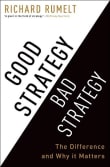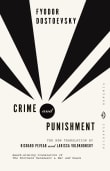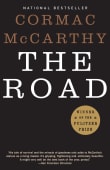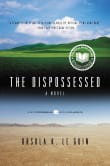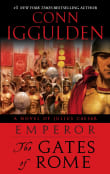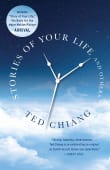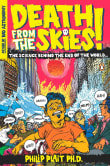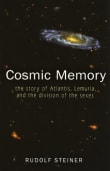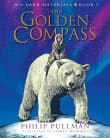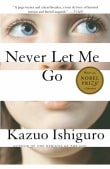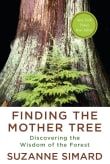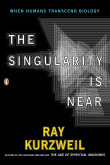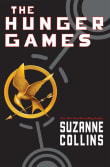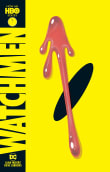Brave New World
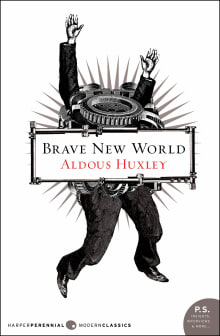
Book description
**One of the BBC's 100 Novels That Shaped Our World**
EVERYONE BELONGS TO EVERYONE ELSE. Read the dystopian classic that inspired the hit Sky TV series.
'A masterpiece of speculation... As vibrant, fresh, and somehow shocking as it was when I first read it' Margaret Atwood, bestselling author of The…
Why read it?
21 authors picked Brave New World as one of their favorite books. Why do they recommend it?

This story and its questions of eugenics and our place in society really horrified me, not because it was unbelievable, but precisely because it was far too real. The genetic superiority/inferiority, coupled with social indoctrination into our “advanced” society, made me meditate a great deal on what it means to be human.
What are humans without societal pressures? The way Huxley looked at the costs of freedom was really compelling. And in so many ways, he accurately predicted the destructive side of the social microscope that we all live in today under social media.
From April's list on scifi that make us meditate on our humanity.

Perhaps you read this one in school, but most haven’t revisited the work since. I urge you to do so! People passionate about innovation need to keep humans foremost in their minds, not the machines (of any sort) that they create.
Huxley’s tale is famous because it’s both simple and profound. It’s also remarkably prophetic. As we focus intently on creating the new, this book reminds us of the bigger picture and calls into question the overall endeavor.
Early in my career, I was responsible for one of the world’s first smartphones. It was a wonderful achievement. But this book…
From Stephen's list on passionate innovators.

Does this book qualify today as non-fiction? Everything about this tale is eye-opening and applicable to our present. Written during the Great Depression, this is a must-read for anyone who has a feeling that not everything is what it seems.
I adore the gripping narrative, notable arcs, and subtle humor, which give this stark tale some needed levity. I always come away from this book with a lot of questions: How can we as a civilization do better? How did Aldous Huxley so accurately portray life in the 21st century? If I had to build a bookshelf of must-reads for…
From Sam's list on questioning reality.
If you love Brave New World...

The world Huxley describes in his 1932 novel is neither brave nor new. People are classified according to their intelligence, and fed into a system governed by a strict hierarchy. Sound familiar?
Not as bleak as some books set in dystopian worlds, but just as chilling for the brutish, sterile existence even the most favoured enjoy within the World State. Written as totalitarian movements were gaining strength around the world, this story of the struggle for individuality and the value of freedom is perhaps even more relevant today.
From Paul's list on dystopian worlds of our own making.

Reading the first pages of Brave New World is like falling down an elevator shaft. Once you begin, you cannot stop.
The people readers meet in Brave New World are, so to speak, content, fat, and happy. Enter John, someone who grew up outside the dystopian utopia and is not happy. Instead, he is disturbed by the swarm of narcissists that surrounds him. He feels loss. Loss of nature. Loss of simple kindness.
Like all the movie adaptions of this great work, he sees prolific vacuousness. Huxley uses John to illuminate the dark places of a future that uses technological…
From James' list on technological advances having a double-edged sword.

Brave New World really captures the societal risks associated with a technologically enhanced world.
While Orwell describes the authoritarian risks of technology, Huxley looks at the disturbing ways that consumerism and capitalist culture can drive social control enhanced by technology. Hyper-sexualisation, pointless consumerism, eugenics, and drug fuelled hedonism, the world Huxley paints flags risks with our current tech-driven world in ways we cannot ignore.
Like 1984, the resonance of Brave New World in modern society was deeply troubling and particularly poignant examples pepper my own book.
From Susie's list on how technology affects your human rights.
If you love Aldous Huxley...

I read Brave New World when I was in college, and I was struck with the methods of controlling the masses through environmental conditioning and with the drug soma.
Huxley’s Brave New World has a caste system with everyone’s lane defined. Those who question the status quo are to be punished. Brave New World is considered by many to be one of the classic works of fiction. It will leave you with a fundamental question, could that ever happen to us? I believe the answer is yes!
From Jack's list on that capture the not-so-distant future.

When our English teacher explained the opposing worlds in this book, we were supposed to take a side.
I do not know about Mr. Huxley’s intentions upon writing this marvelous and entertaining work, but the title itself is sarcasm on the world to come. A society where people are genetically designed to belong to a class and perform according tasks in full enjoyment.
The upper classes waste time, having fun and sex driven by a drug, while who knows who or where, technology, goods, and food are produced and supplied.
In our world today, metaverse and virtual reality are that…
From Paul's list on the Western’s social unrest and decay.

Brave New World is both frightening and enticing at the same time. It confronts the reader with a perfectly managed society that is orderly and fine-tuned in so many ways so as to give a perfect superficial paradise-like veneer. The only problem is that when you look more closely at it as the “savage” did with the woman who is so willing to give up her body so freely to him, it’s cheap, inhuman, and hollow to the core. The society has no human value or substance.
From Gordon's list on scientific research on humans or animals.
If you love Brave New World...

Brave New World is a relatively well-known British novel, lazily classified as science-fiction. Instead, it is actually a dystopian novel that offers a view of the future that is not grim or tyrannical, like 1984, but passive and disheartening. Nobody is in pain in Brave New World, everyone is happy and acquiescing, enjoying the pleasure of the senses. I loved it for its satirical hints to Ford’s assembly line and for its prediction of what genetic engineering may do to society decades before the discovery of the DNA. It is a novel that creates a possible future from real…
From Trevor's list on turning history upside down.
If you love Brave New World...
Want books like Brave New World?
Our community of 12,000+ authors has personally recommended 100 books like Brave New World.



